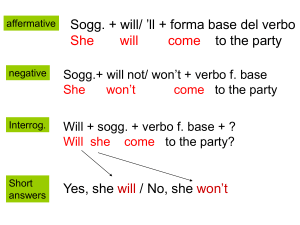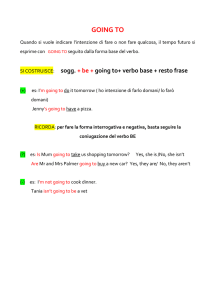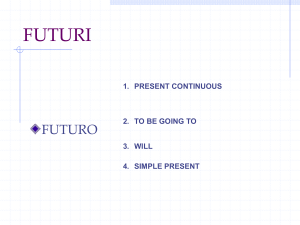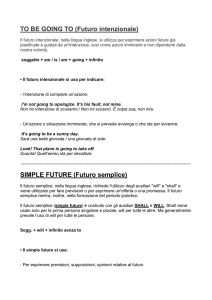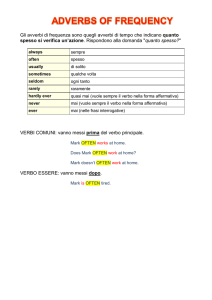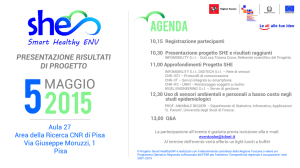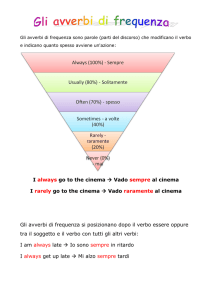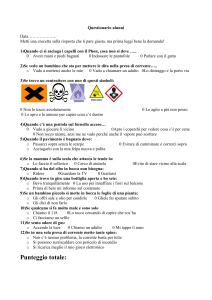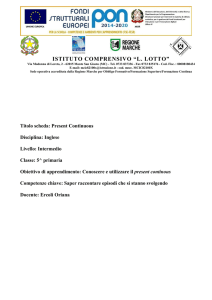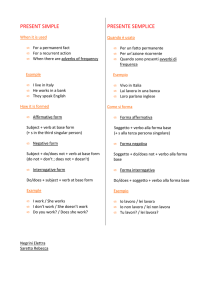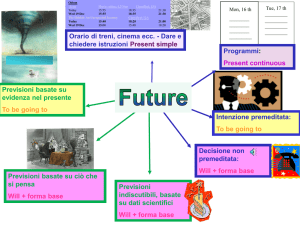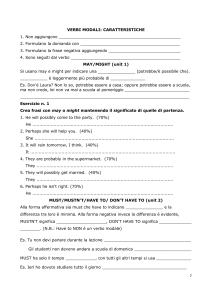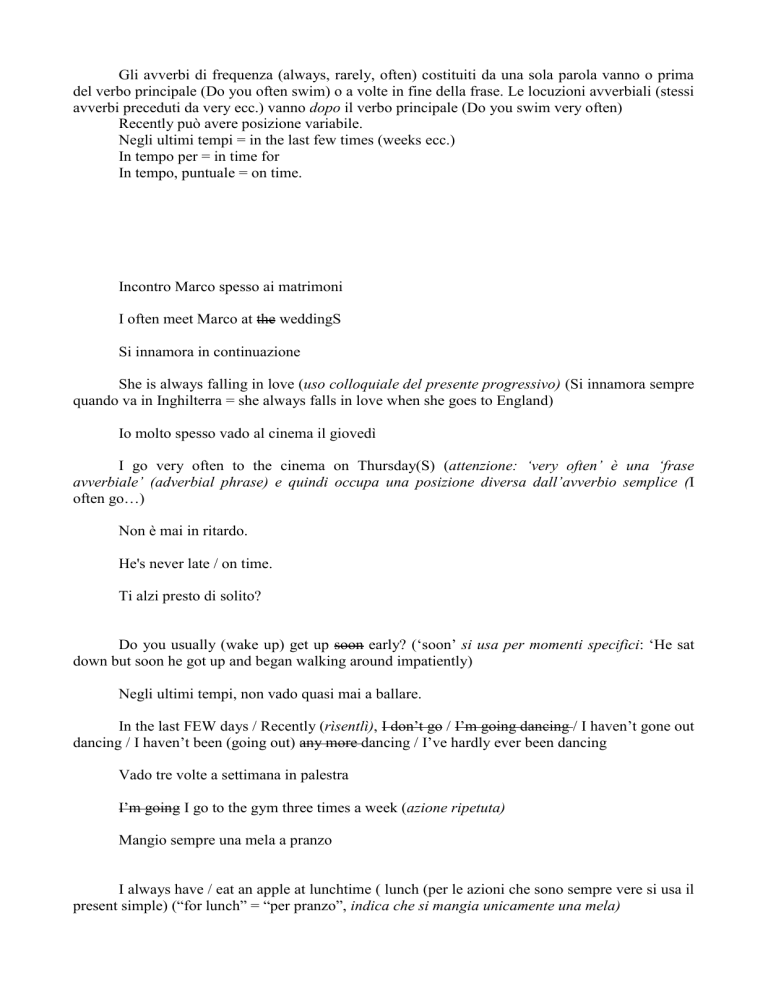
Gli avverbi di frequenza (always, rarely, often) costituiti da una sola parola vanno o prima
del verbo principale (Do you often swim) o a volte in fine della frase. Le locuzioni avverbiali (stessi
avverbi preceduti da very ecc.) vanno dopo il verbo principale (Do you swim very often)
Recently può avere posizione variabile.
Negli ultimi tempi = in the last few times (weeks ecc.)
In tempo per = in time for
In tempo, puntuale = on time.
Incontro Marco spesso ai matrimoni
I often meet Marco at the weddingS
Si innamora in continuazione
She is always falling in love (uso colloquiale del presente progressivo) (Si innamora sempre
quando va in Inghilterra = she always falls in love when she goes to England)
Io molto spesso vado al cinema il giovedì
I go very often to the cinema on Thursday(S) (attenzione: ‘very often’ è una ‘frase
avverbiale’ (adverbial phrase) e quindi occupa una posizione diversa dall’avverbio semplice (I
often go…)
Non è mai in ritardo.
He's never late / on time.
Ti alzi presto di solito?
Do you usually (wake up) get up soon early? (‘soon’ si usa per momenti specifici: ‘He sat
down but soon he got up and began walking around impatiently)
Negli ultimi tempi, non vado quasi mai a ballare.
In the last FEW days / Recently (rìsentlì), I don’t go / I’m going dancing / I haven’t gone out
dancing / I haven’t been (going out) any more dancing / I’ve hardly ever been dancing
Vado tre volte a settimana in palestra
I’m going I go to the gym three times a week (azione ripetuta)
Mangio sempre una mela a pranzo
I always have / eat an apple at lunchtime ( lunch (per le azioni che sono sempre vere si usa il
present simple) (“for lunch” = “per pranzo”, indica che si mangia unicamente una mela)
Ciao, che fai? Vado a scuola
Hi, what are you… up to / doing / … what’s up? I’m going to school (per le azioni che si
stanno verificando nel momento o nel periodo in cui si parla si usa il present progressive)
Domani, prendo il treno alle 8
Tomorrow, take / will take I’m taking the train at 8 o’clock / the 8 o’clock train. (Tomorrow)
I’m catching the 8 o’clock train tomorrow (per le azioni che si è programmato di svolgere il futuro
si usa di solito il present progressive (o per le intenzioni anche “I’m going to” + infinito senza to)
Il giovedì vado in bicicletta con mio cognato in campagna
On Thursday(s), I’m going I go cycling / I ride the my bike… with my brother-in-law in the
country.
Che fa? Sta guardando dalla finestra.
What is he doing / what does he do? He’s watching outside looking out the window.
(quando usiamo “watch” specifichiamo di solito cosa o chi viene guardato: he’s watching from the
window the cars go by; ‘through’ sottintende che la finestra è chiusa e guardiamo ‘attraverso’ il
vetro, piu’ che essere affacciati)
Sta per sposarsi?
Is she about to get married / Is she getting married? ( / is she going to get married
significano si sposa?)
Mi stai dicendo che vieni?
Are you telling me you will come you’re coming? Are you saying me you’re coming?
Stai capendo?
Do you understand? / Have you understood / Are you understanding following
2

